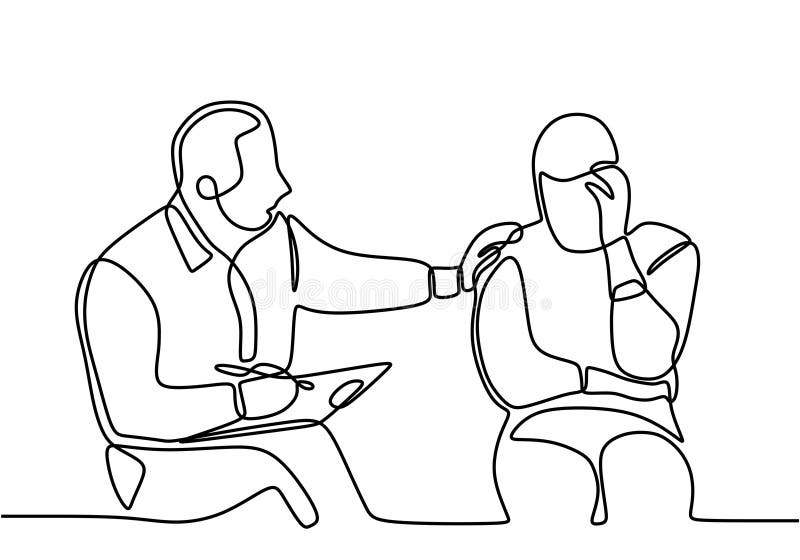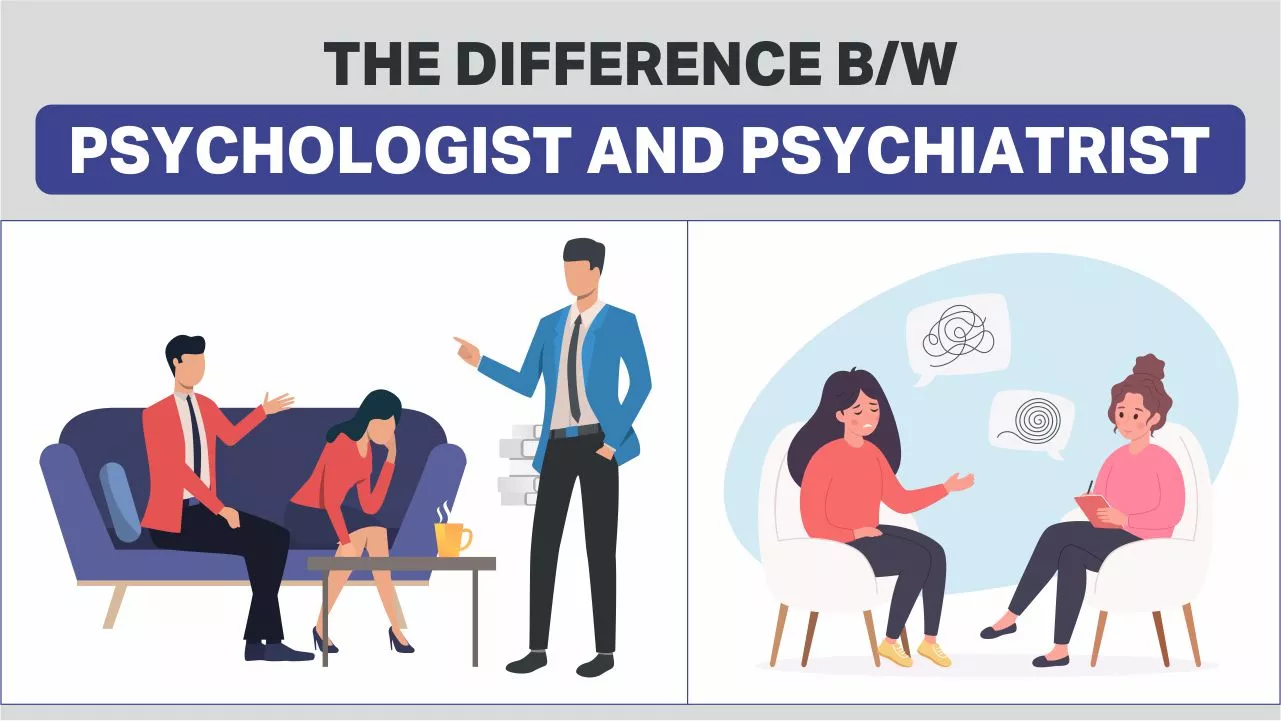Your Course to Healing: Insights from the Best Psychologist in Delhi
Your Course to Healing: Insights from the Best Psychologist in Delhi
Blog Article
Psych Treatment: A Comprehensive Guide to Methods and End Results

Cognitive-Behavioral Treatment
Cognitive-Behavioral Treatment (CBT) is a commonly made use of psychotherapeutic approach that focuses on recognizing and modifying inefficient thinking and habits patterns. Established in the 1960s by Aaron T. Beck, CBT incorporates behavior and cognitive concepts to deal with different mental health and wellness issues, including clinical depression, anxiety, and stress-related disorders.
Methods such as cognitive restructuring, direct exposure treatment, and skill-building workouts are frequently used. Cognitive restructuring entails challenging and changing negative idea patterns, while exposure treatment aims to minimize anxiety and stress and anxiety with steady direct exposure to been afraid circumstances or items.
Evidence-based study sustains the effectiveness of CBT for a large range of mental problems - Best Psychologist in Delhi. Its focus on skill purchase and self-help methods encourages clients to continue development individually after therapy wraps up. The flexibility and effectiveness of CBT have made it a foundation in modern psychotherapeutic technique
Psychodynamic Approaches
Rooted in the early theories of Sigmund Freud, psychodynamic methods focus on checking out the subconscious mind and its impact on habits and feelings. These techniques intend to reveal surprise ideas and sensations that may be driving maladaptive behaviors and emotional distress. Central to this technique is the idea of internal conflict, usually stemming from unsettled past experiences, especially those from youth.
Therapists using psychodynamic methods utilize a number of crucial techniques, consisting of complimentary organization, where individuals are motivated to speak freely to reveal subconscious product, and dream analysis, which analyzes the unrealized web content of desires. In addition, the expedition of transference and countertransference characteristics within the healing partnership is vital. These communications can offer insights right into the individual's interior globe and relational patterns.
Psychodynamic therapy is typically longer-term compared to various other methods, offering a thorough and deep understanding of the individual's mind. Research shows that it can be specifically effective for intricate psychological health and wellness issues, such as individuality problems and chronic clinical depression. By promoting self-awareness and psychological insight, psychodynamic treatment seeks to bring unconscious product to consciousness, making it possible for individuals to attain enduring and significant change in their lives.
Humanistic Methods
Structure on the foundations laid by psychodynamic techniques, humanistic strategies provide a distinctive perspective concentrated on specific potential and self-actualization. Coming from in the mid-20th century, these strategies prioritize the intrinsic goodness and growth capacity of people, highlighting an all natural sight of human experience. Key numbers such as Carl Rogers and Abraham Maslow have actually considerably affected this restorative technique, which incorporates approaches like client-centered treatment and Gestalt treatment.
Client-centered treatment, established by Rogers, plays a pivotal function in humanistic strategies. It counts on the therapist offering a setting of genuine favorable respect, compassion, and harmony. This promotes a safe area for customers to discover their sensations and experiences without judgment, promoting self-discovery and individual development. The specialist's duty is even more of a facilitator than an authority, urging customers to harness their internal resources for healing.
Gestalt therapy, one more important humanistic technique, emphasizes existing minute understanding and the integration of mind and body. By concentrating on the "right here and now," customers get better insight into their current feelings and habits. Methods such as role-playing and directed visualization are typically utilized to help customers acquire a deeper understanding of themselves, inevitably bring about improved self-awareness and fulfillment.
Integrative Treatments
Integrative article source therapies stand for Discover More a synthesis of different restorative methods tailored to satisfy the distinct demands of each customer. This approach recognizes the complexity of human psychology and the diverse nature of mental wellness issues. By incorporating aspects from various institutions of psychotherapy-- such as cognitive-behavioral treatment (CBT), psychodynamic treatment, and humanistic techniques-- integrative treatments provide an even more alternative and adaptable treatment standard.
Specialists of integrative treatment assess each customer's specific demands, signs and symptoms, and individual history to create a customized therapy strategy. This individualized technique enhances the capacity for healing success by dealing with the source of psychological distress and promoting general health. Techniques might include mindfulness exercises, cognitive restructuring, and emotional handling, each chosen to target various facets of the customer's issues.
Moreover, integrative therapies emphasize the therapeutic connection, seeing the client-therapist bond as an essential part of reliable therapy. This partnership cultivates an encouraging environment where clients feel safe to explore and address their concerns. The adaptability of integrative treatments makes them ideal for a wide series of conditions, including anxiety, depression, injury, and social troubles, therefore raising their applicability and effectiveness in diverse professional setups.

Gauging Therapy End Results
Assessing the performance of psychotherapy is vital for both clinicians and customers to make sure that the treatment is producing the wanted end results. To achieve this, different approaches and devices are employed to determine treatment results systematically. Standard evaluation tools, such as the Beck Depression Stock (BDI) and the Generalized Anxiousness Disorder 7 (GAD-7), offer quantitative information on signs and symptom severity and changes gradually.
In enhancement to standard devices, qualitative approaches like client self-reports and medical interviews use useful understandings right into the individual experiences and regarded progression click reference of customers. Routinely arranged examinations, normally at the beginning, omphalos, and end of treatment, help in tracking the trajectory of renovation or recognizing locations requiring modification.
End result dimension is not limited to sign decrease; it additionally includes practical enhancements in day-to-day live, such as much better social connections, boosted work productivity, and enhanced total wellness. Modern improvements in digital health have actually introduced mobile apps and online systems that help with real-time monitoring and responses, additionally fine-tuning the assessment procedure.
Ultimately, a thorough technique to determining treatment results guarantees that healing treatments work, reliable, and tailored to satisfy the specific needs of clients, thus optimizing the total therapeutic experience.
Verdict
Psychotherapy offers a diverse array of methods intended at attending to specific mental wellness issues and improving overall wellness. Cognitive-Behavioral Treatment and psychodynamic techniques target unconscious influences and useless ideas, respectively. Humanistic methods concentrate on individual growth and self-actualization, while integrative therapies integrate numerous methods for tailored treatment plans. Examining treatment outcomes through qualitative methods and standardized assessments makes sure a comprehensive understanding of efficiency, eventually leading customers towards sustaining psychological health enhancements.
From the organized technique of Cognitive-Behavioral Therapy (CBT) to the deep exploration of the subconscious in psychodynamic treatment, each technique brings distinct benefits. Its emphasis on ability procurement and self-help strategies equips clients to proceed development separately after therapy ends (Best Psychologist in Delhi). Secret figures such as Carl Rogers and Abraham Maslow have actually substantially influenced this therapeutic strategy, which includes methods like client-centered treatment and Gestalt therapy

Report this page